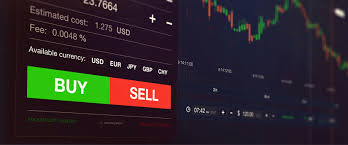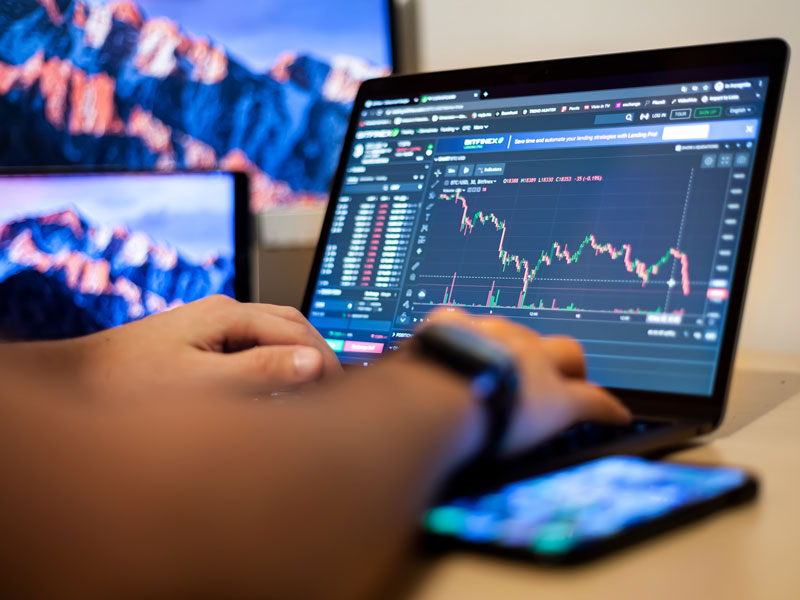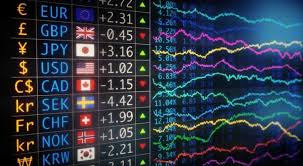
Currency trading, particularly in the currency trading forex Forex Brokers in Kuwait, is a fascinating and often lucrative venture. With the right knowledge and skills, traders can capitalize on the fluctuations in currency values. In this comprehensive guide, we’ll explore everything you need to know about forex trading, from basics to advanced strategies.
What is Forex Trading?
Forex trading, or foreign exchange trading, refers to the process of buying and selling currencies in pairs to make a profit. This market is the largest and most liquid financial market in the world, with daily trading volumes exceeding $6 trillion. Traders participate in the forex market for various reasons, including speculation, hedging, or simply as part of their investment strategy.
How Forex Trading Works
In forex trading, currencies are quoted in pairs, such as EUR/USD (Euro/US Dollar) or GBP/JPY (British Pound/Japanese Yen). The first currency in the pair is known as the base currency, and the second is the quote currency. When you buy a currency pair, you are effectively buying the base currency while selling the quote currency. Conversely, when you sell a currency pair, you are selling the base currency while buying the quote currency.
Understanding Currency Pairs
There are three main types of currency pairs: major pairs, minor pairs, and exotic pairs. Major pairs include the most traded currencies, such as USD, EUR, and JPY. Minor pairs are less widely traded and typically feature currencies like AUD, CAD, and NZD. Exotic pairs involve a major currency and a currency from a developing economy, offering unique trading opportunities but often with higher risk and volatility.
Setting Up Your Forex Trading Account
To begin trading in the forex market, you need to set up a trading account with a reputable broker. Here are the steps to follow:

- Research and Choose a Broker: Look for brokers that are regulated, have a good reputation, and offer a trading platform that suits your needs.
- Complete the Registration Process: Most brokers require you to fill out an online registration form and provide identification for verification purposes.
- Deposit Funds: Once your account is set up, you’ll need to deposit funds to start trading. Different brokers offer various funding methods, such as bank transfers or credit cards.
- Practice with a Demo Account: Before trading with real money, it’s advisable to practice using a demo account. This helps you familiarize yourself with the trading platform and test your strategies.
Developing a Trading Strategy
A successful trading strategy is essential for trading in the forex market. Here are some key components to consider:
1. Technical Analysis
Many traders use technical analysis to forecast currency movements. This involves using charts and indicators to analyze price patterns, trends, and market sentiment. Popular tools include moving averages, Fibonacci retracements, and MACD (Moving Average Convergence Divergence).
2. Fundamental Analysis
Fundamental analysis looks at economic indicators, political events, and other factors that can influence currency values. Key indicators include interest rates, employment figures, and GDP growth. Staying informed about global economic news can give traders an edge in predicting currency movements.
3. Risk Management
Effective risk management is crucial for long-term success in forex trading. This involves setting stop-loss orders to limit potential losses, determining the right position size, and never risking more than a small percentage of your trading capital on a single trade.
Using Trading Platforms

Forex brokers provide traders with access to trading platforms that facilitate buying and selling currencies. Popular trading platforms include MetaTrader 4 (MT4) and MetaTrader 5 (MT5), known for their user-friendly interfaces and advanced charting capabilities.
Features of Trading Platforms
- Charting Tools: Traders can analyze price movements and trends using various chart types and indicators.
- Order Types: Platforms allow traders to place different types of orders, including market orders, limit orders, and stop orders.
- Automated Trading: Some platforms support automated trading through algorithmic strategies, enabling traders to execute trades without manual intervention.
Staying Informed
One of the keys to successful forex trading is staying informed about market trends and news. Follow reputable financial news sources, join online trading communities, and attend webinars or seminars to enhance your knowledge and skills.
Common Mistakes to Avoid
Forex trading comes with its challenges, and many traders make common mistakes that can lead to losses. Here are a few to watch out for:
- Overleveraging: Using excessive leverage can amplify losses. It’s important to use leverage wisely and understand the risks involved.
- Neglecting Risk Management: Failing to implement risk management strategies can lead to significant losses.
- Emotional Trading: Letting emotions dictate trading decisions can cloud judgment. Stick to your trading plan and strategy.
Conclusion
Forex trading offers a wealth of opportunities for individuals willing to educate themselves and develop a solid trading strategy. By understanding the fundamentals of the forex market, setting up the right trading account, and utilizing effective trading strategies, anyone can navigate the complexities of currency trading. Always remember to manage risk carefully and stay informed about market developments to maximize your chances of success in forex trading.
